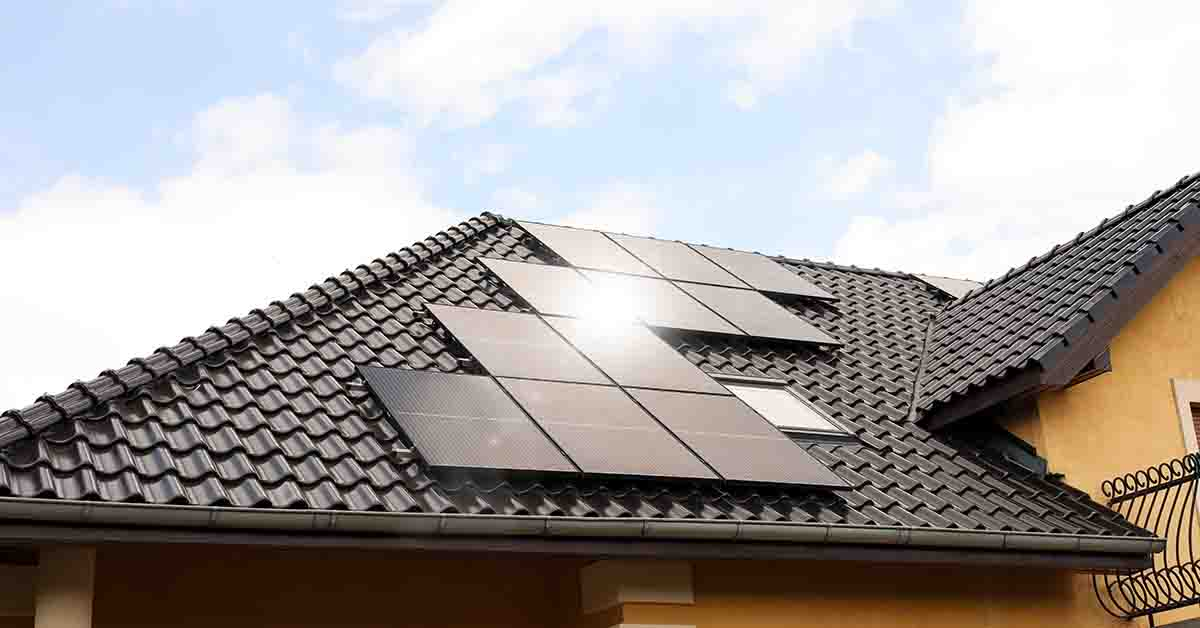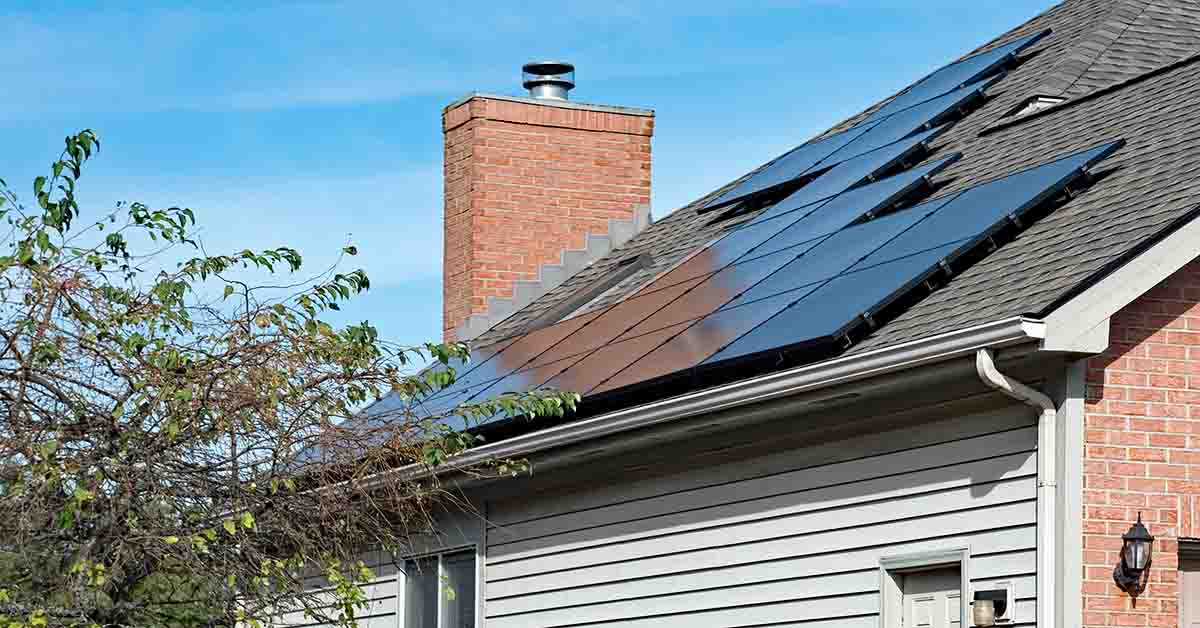With the advancement of technology and the decrease in costs, the advantages of solar energy are becoming increasingly apparent.
Once a luxury that only wealthy homeowners could afford, now it is a cost cutting measure that ordinary homeowners cannot ignore. However, the benefits of using solar energy are not only related to energy conservation, but also to various aspects, from the value of houses to the long-term health of global ecosystems.

As we mentioned above, solar panels are no longer a luxury item - they are a reliable long-term investment and a tool to hedge against rising energy costs.
As of October 2022, the average price of grid electricity was 16.7 cents per kilowatt hour - a 16% increase from the previous year, while the average cost of solar power purchased through solar.com was approximately 7 cents per kilowatt hour.
The main advantage of solar energy is that it freezes your energy costs at low rates for over 25 years, effectively protecting you from the impact of rising energy prices. The above is a comparison between purchasing solar energy systems and paying for grid electricity bills. Solar energy requires a considerable upfront investment, unless you choose to use solar energy loans for financing. However, solar systems typically cost several times more and can generate energy savings of over $100000 during their warranty period.
The second advantage of solar energy is its versatility. Although you may imagine solar panels in sunny places such as Florida and California, rooftop solar energy can provide clean energy and save on water and electricity bills in almost every corner of the United States.
That's right, solar energy can even be used in rainy Seattle, where electricity is very cheap and there are over 200 cloudy days every year.
There are several things at work here. Firstly, solar panels can use both direct and indirect sunlight simultaneously. Therefore, even on cloudy days, battery panels can still produce electricity. Secondly, using net metering or battery storage, you can store excess solar energy production on sunny days to offset the time your panels are not produced.
This also means that solar energy is suitable for installation in cities, suburbs, and rural areas. If you live in a city or suburban area, you can combine solar panels with net metering to offset your electricity bills. If you are in rural areas or off the grid, you can pair solar panels with battery storage to create your own micro utility.
Solar energy can also be installed on various roof types or independent configurations. One thing to note is shading. If there are tall trees or buildings around your house, solar energy may not be an ideal investment.
It is difficult to exaggerate the environmental advantages of solar energy and how crucial it is in curbing and responding to climate change.
In terms of curbing climate change, solar energy is a renewable energy source with emissions only a small fraction of natural gas or coal. In fact, the small amount of emissions required to manufacture a solar panel is offset in the first two years of its production. This has resulted in no emissions from energy production for 20-30 years.
Roof solar energy is particularly eco-friendly as it does not require additional land use. Other forms of energy - such as fracturing, coal mining, hydropower, wind energy, and large-scale solar energy - have disrupted natural ecosystems. On the other hand, rooftop solar energy does not.
Roof solar energy is also beneficial for the local area. By producing clean energy, you reduce the dependence of local utilities on fossil fuels, thereby reducing local carbon emissions that lead to adverse health outcomes such as asthma in children.

In addition to energy conservation, solar panels also provide a second form of investment return, which increases the value of houses.
Both Zillow and Berkeley laboratory studies have concluded that solar panels will increase the value of houses - the only question is how much. Zillow believes that this number is 4.1% of the value of existing houses, while Berkeley Laboratories found that for every kilowatt of solar energy installed, the capacity is approximately $4000.
The benefit for homeowners is that even if they move, they can still recoup the cost of purchasing solar energy. Moreover, if they utilize a 30% federal solar tax credit, the value of houses provided by solar panels can exceed the net cost of purchasing them.
Even better, 34 states and the District of Columbia have property tax exemptions for solar equipment. In many cases, this means that you don't have to pay taxes on the additional value brought to your house by solar energy equipment.
Another advantage of solar energy is that today's solar panels have a long warranty period, which also strengthens every other point on this list.
Modern solar panels typically have a manufacturer's performance guarantee of 25 years, ensuring that the panels maintain a certain output level - typically 85% - throughout the entire warranty period. This is longer than the warranty period for cars, stoves, laptops, or almost anything else you can buy.
The reason why solar panels have such a long warranty period is because they basically have no moving parts. It is worth noting that solar panels do not die or retire at the end of the warranty period - they can continue to generate electricity for a longer period of time, despite the lower annual electricity output.
This long-term performance guarantee sets solar panels apart from other types of investments. Can you imagine a stockbroker ensuring that your investment portfolio will perform well for a quarter century?
With the continuous improvement of technology and the continuous rise of electricity prices, the advantages of solar energy will only become greater and greater.

